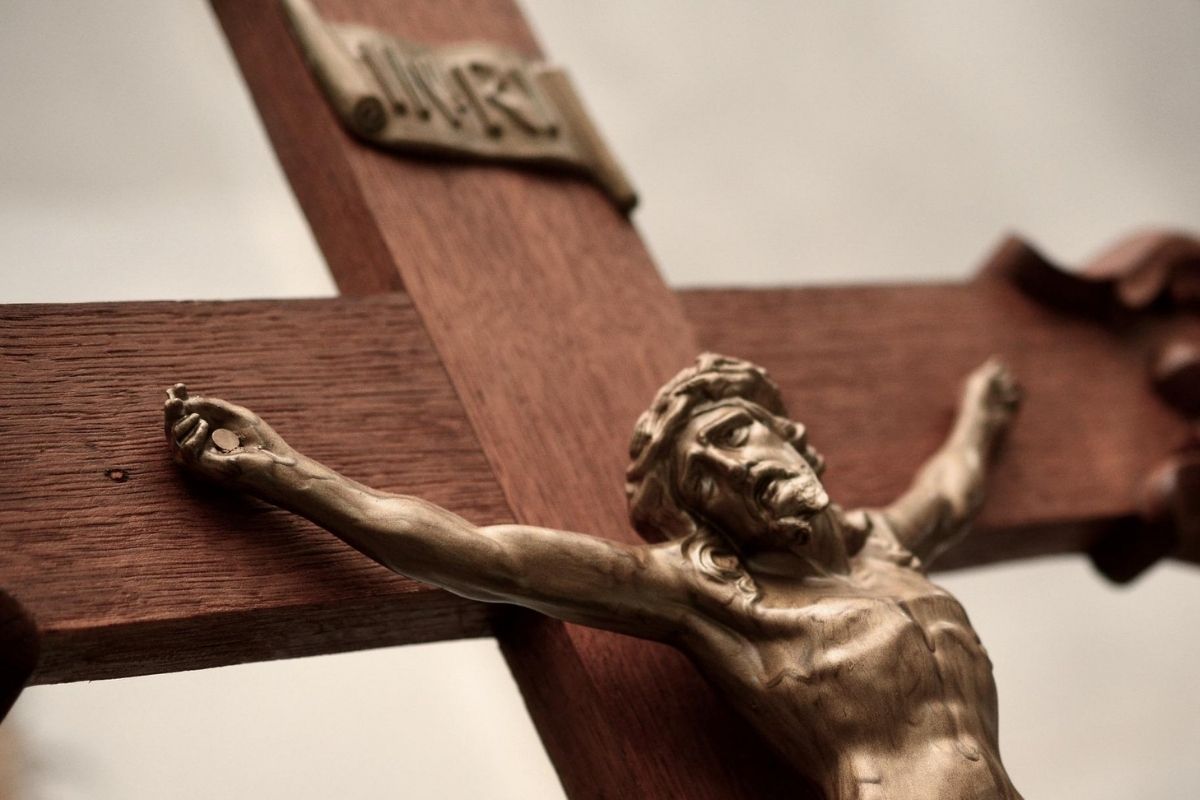
Did God turn his face away?
“Eloi, Eloi, lema sabachthani?” (Aramaic for “My God! My God! Why have you forsaken me?”). These were among the words that escaped the parched lips of the mutilated Messiah. They are mentioned in Mark 15:34, repeated in Matt 27:46, but not in Luke and John.
Taken at face value, it is a cry of dereliction: The Father had apparently forsaken Jesus. The burden of this short article is to demonstrate that to think so would be a gross mistake.
The Father could not and did not forsake Jesus
While there is clear indication that Jesus, the Lamb of God, took away the sin of the world, no text in the New Testament states that God the Father was compelled to forsake the Son on the Cross, because of human sin (John 1:29; 2 Cor 5:21). The eternal bond within the Godhead, between the Father, Son and Spirit, could not have been severed on the Cross.
Jesus, well aware of both the impending horror and the decisive victory of the Cross, knew that his disciples would scatter and abandon Him. However, He was absolutely confident of the Father’s intimate presence with him on Golgotha (John 16:32).
Jesus always addressed God as Father
This is abundantly clear in the Gospels. Hence, among the recorded words uttered from the Cross, we hear: “Father, forgive them, for they do not know what they are doing” and, finally, “Father, into your hands I commit my spirit” (Luke 23:34, 46). Clearly, the Father is right there with the crucified Jesus.
If so, the anguished words of Jesus on the Cross (“My God! My God!”) must be understood in some other way—as we shall soon see.
Jesus did enter into the horrible abyss of darkness and sin
Jesus did drink the cup of horrible darkness and degradation of sin, on behalf of the whole human race. But even so, God, by sending His Son as a sin offering, took away our condemnation, and disarmed and triumphed over Satanic powers and authorities (Col 2:13-15). God never turns His face away from a sinful world; rather He constantly reaches out to the world in unrelenting grace and love.
Jesus was reciting the words of Psalm 22
The messianic Psalm 22 recounts the words of a righteous sufferer, who expresses his lament to God—the pain and darkness of unjust present suffering, yet moving on to ultimate vindication and salvation. A careful reader will notice the many resonances in the psalm with what Jesus was experiencing on the Cross. The bystanders shake their heads and mock Him (Ps 22:6-8; Matt 27:41-44; Mark 15:29-30); Jesus suffers terrible thirst (Ps 22:15; John 19:28); and the soldiers cast lots for his garment, maybe to keep as a trophy (Ps 22:18; Matt 27:35).
While the psalmist says metaphorically that “they pierce my hands and my feet” (Ps 22:16), Jesus’s body was literally pierced—and the marks endure after the resurrection.
On the Cross, Jesus was reciting the words of Psalm 22, beginning with the opening verse. And then He would have worked His way through the psalm. Jesus would have learnt, early on, that such psalms revealed His calling to be the Suffering Servant who would deliver Israel (Isa 52:13 – 53:12).
Psalm 22 ends in confident victory
The psalmist continues: “For he has not despised or scorned the suffering of the afflicted one; he has not hidden his face from him, but has listened to his cry for help” (Ps. 22:24). Jesus would declare God’s praise among His “brothers and sisters”—which is Psalm 22:22, but cited in Heb. 2:12. The psalmist is quite confident that his God will vindicate him, and as a result, “the whole world will turn to the Lord and bow down before Him” (Ps. 22:27).
The psalm ends on a triumphant note: “He has done it!” (22:31c). That perfectly represents Jesus’s victorious cry: “It is finished”! (John 19:30). After this, Jesus peacefully submits his spirit to the hands of his Father (Luke 23:46). The Father was right there with Jesus. Just as Jesus expected.
The Triune God working together on the Cross
Paul clearly sees the triune God working for the redemption of all creation. “All this is from God, who reconciled us to himself through Christ and gave us the ministry of reconciliation: that God was reconciling the world to himself in Christ, not counting people’s sins against them.” (2 Cor 5:18-19) The writer to the Hebrews says that Christ offered Himself to God through the eternal Spirit (Heb. 9:14).
So, where was God when Jesus was on the Cross? He was in Christ! He too suffered with Jesus! In line with this reality, the German theologian Jürgen Moltmann wrote about a God who is in solidarity with His suffering creatures, so as to ultimately redeem them (The Crucified God, 1972).
In some marvelous and mysterious way—too deep for me to articulate here—the Triune God was involved in the redemption of the world on the Cross of Jesus. The eternal bonds within the Godhead could never be broken.
God’s infinite love is revealed on the Cross
Friends, in ways we will never fully fathom, the love of God has been revealed on the Cross of Jesus. The way of sacrificial love, “the deeper magic” in the universe (in the words of Aslan in The Chronicles of Narnia). And that love is poured into our hearts through the Holy Spirit (Rom 5:5).
The theme song of the early 20th century Welsh revival boldly declare:
“On the mount of crucifixion, fountains opened deep and wide;
Through the floodgates of God’s mercy, flowed a vast and gracious tide.
Grace and love, like mighty rivers, poured incessant from above;
And heaven’s peace and perfect justice, kissed a guilty world in love.”
The Father never abandoned Jesus. He will never abandon you!